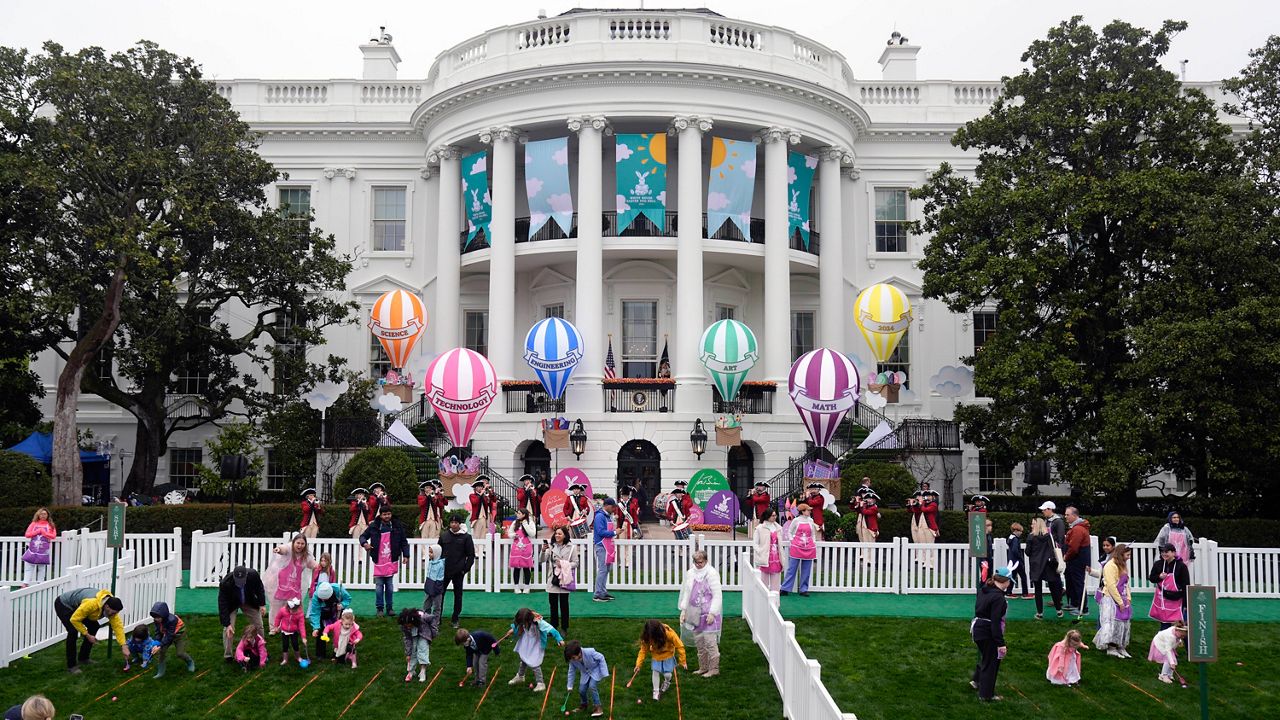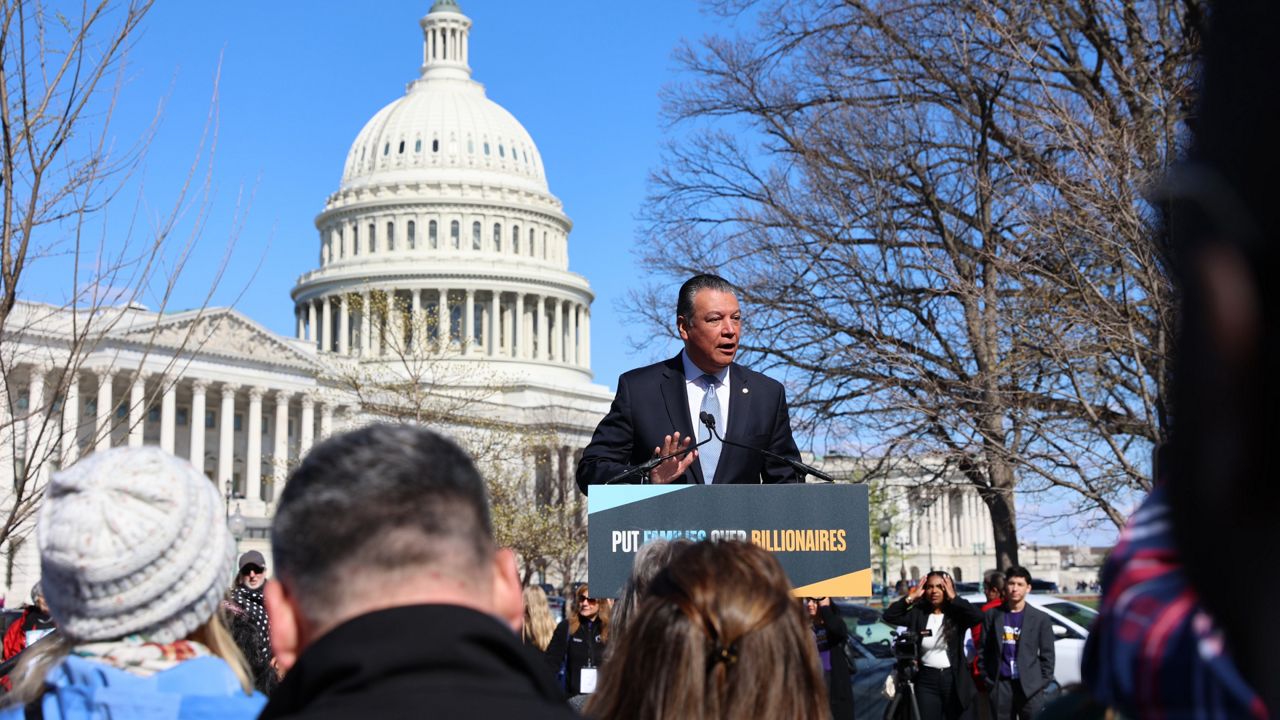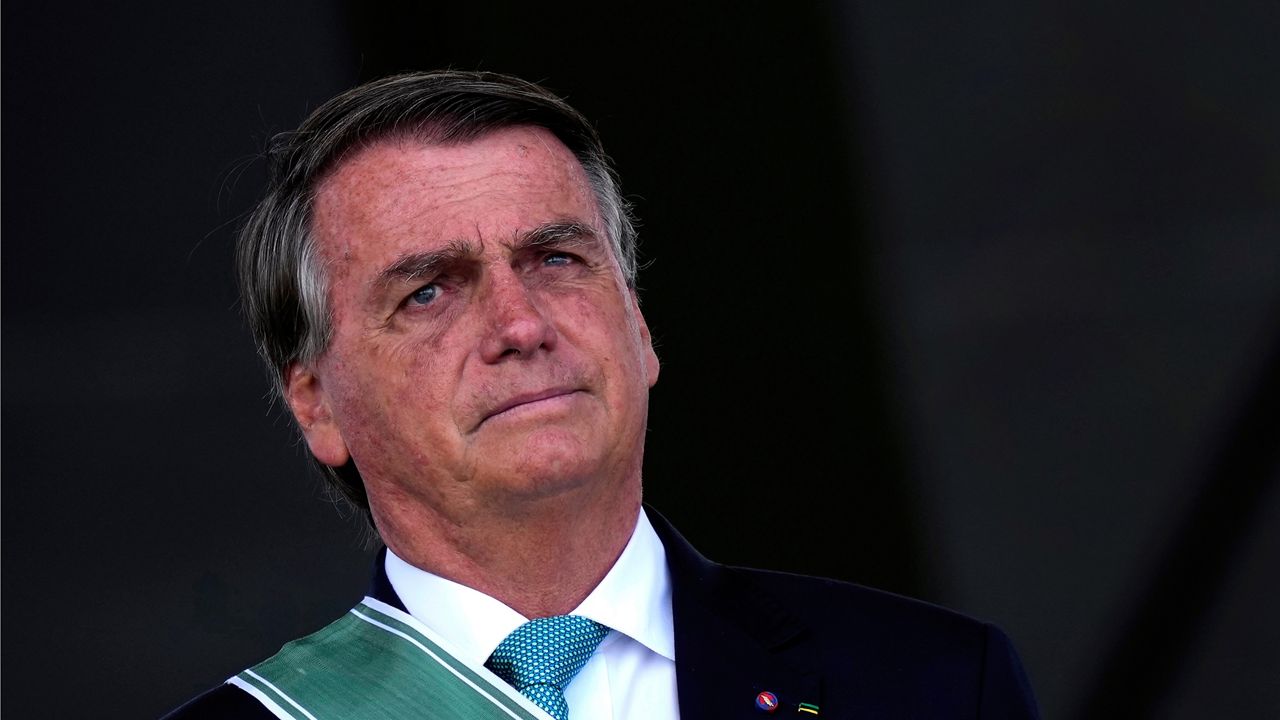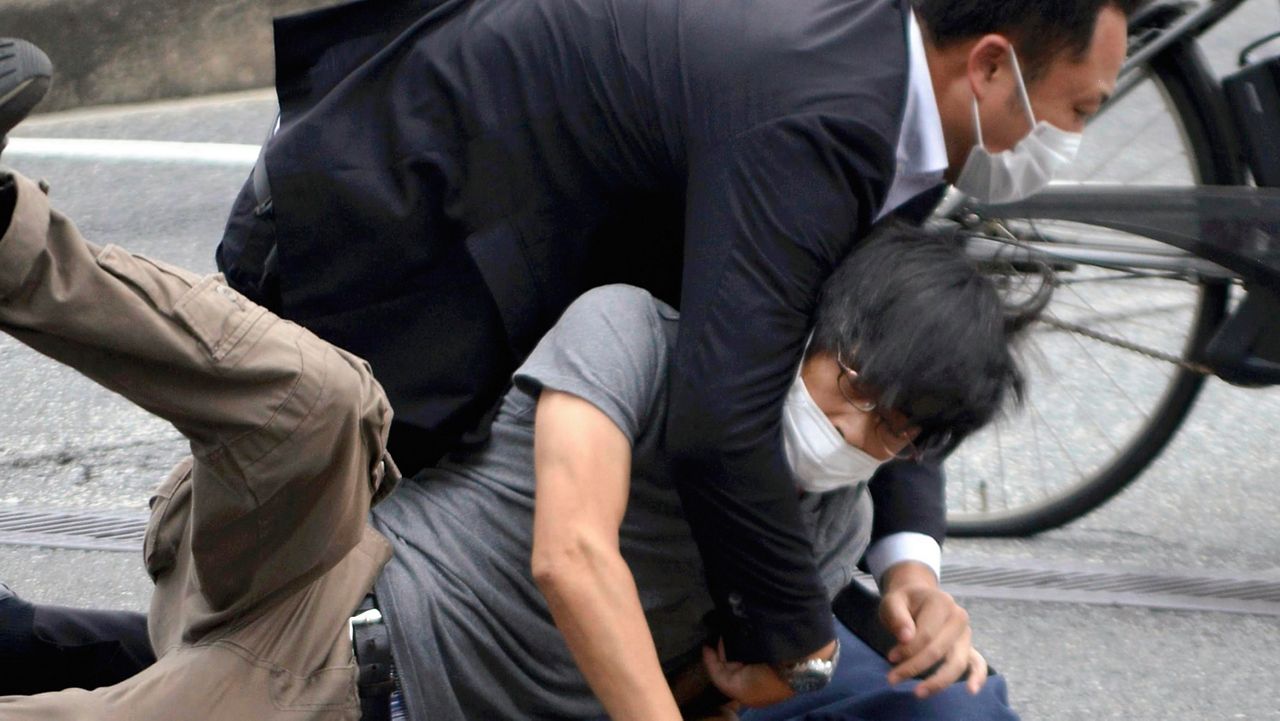Speaking at a Democratic fundraiser Thursday night, President Joe Biden declared that the risk of nuclear “Armageddon” is at the highest level since the 1962 Cuban Missile Crisis, as Russian officials speak of using tactical nuclear weapons after suffering massive setbacks in the eight-month invasion of Ukraine.
Biden said at the event that Russian President Vladimir Putin is “a guy I know fairly well” and the Russian leader is “not joking when he talks about the use of tactical nuclear weapons or biological or chemical weapons.”
“We have not faced the prospect of Armageddon since Kennedy and the Cuban Missile Crisis," Biden added, before suggesting the threat from Putin is real “because his military is — you might say — significantly underperforming.”
U.S. officials for months have warned of the prospect that Russia could use weapons of mass destruction in Ukraine as it has faced strategic setbacks on the battlefield, though Biden’s remarks marked the starkest warnings yet by the U.S. government about the nuclear stakes.
Still, nothing has changed in U.S. intelligence assessments that in recent weeks have shown no evidence that Putin has imminent plans to deploy nuclear weapons, according to U.S. officials on Friday.
But still, one expert told Spectrum News that Biden's use of such rhetoric is striking.
"I think it is telling if President Biden does feel the weight of this moment as heavy as the '62 Cuban missile crisis," said Sharon Squassoni, a research professor of practice at the Institute for International Science and Technology Policy (IISTP) at George Washington University.
Squassoni said that while Putin has made several "vague" nuclear threats since Russia's invasion of Ukraine began, "it hasn’t really deterred the US or it’s allies from actions that Putin wanted to deter like providing assistance," like financial or military aid.
"What’s different this time is the sham elections," Squassoni said, referring to the Kremlin-orchestrated “referendum” on living under Moscow’s rule in four regions of Ukraine that the Ukrainian government and the West denounced as illegal and rigged.
One official told The Associated Press that Biden was speaking broadly about the administration’s growing concerns about Putin’s threats.
Biden was conveying that the White House sees Putin’s rhetoric as “reckless and irresponsible” and is taking it seriously, the official said. The official added that Biden’s remarks are in line with warnings he’s made in speeches at the U.N. General Assembly and that other senior administration officials have made recently.
The president’s new remarks came after White House officials this week said they have seen no change to Russia’s nuclear forces that would require a change in the alert posture of U.S. nuclear forces.
“We have not seen any reason to adjust our own strategic nuclear posture, nor do we have indication that Russia is preparing to imminently use nuclear weapons,” White House press secretary Karine Jean-Pierre said Tuesday.
"But Putin can de-escalate this at any time, and there is no reason to escalate," she added.
"The president was at a fundraiser, so I doubt what he said was supposed to be a message to President Putin," Squassoni told Spectrum News. "I think there are other channels ... for signaling the seriousness of what is happening."
The 13-day showdown in 1962 that followed the U.S. discovery of the Soviet Union’s secret deployment of nuclear weapons to Cuba is regarded by experts as the closest the world has ever come to nuclear annihilation. The crisis during President John F. Kennedy’s administration sparked a renewed focus on arms control on both sides of the Iron Curtain.
Biden on Thursday also challenged Russian nuclear doctrine, warning that the use of a lower-yield tactical weapon could quickly spiral out of control into global destruction.
“I don’t think there is any such a thing as the ability to easily use a tactical nuclear weapon and not end up with Armageddon,” Biden said.
He added that he was still “trying to figure” out Putin’s “off-ramp” in Ukraine.
“Where does he find a way out?” Biden asked. “Where does he find himself in a position that he does not only lose face but lose significant power within Russia?”
Putin has repeatedly alluded to using his country’s vast nuclear arsenal, including last month when he announced plans to conscript Russian men to serve in Ukraine.
“I want to remind you that our country also has various means of destruction ... and when the territorial integrity of our country is threatened, to protect Russia and our people, we will certainly use all the means at our disposal,” Putin said Sept. 21, adding with a lingering stare at the camera, “It’s not a bluff.”
White House national security adviser Jake Sullivan said last week that the U.S. has been “clear” to Russia about what the “consequences” of using a nuclear weapon in Ukraine would be.
“This is something that we are attuned to, taking very seriously, and communicating directly with Russia about, including the kind of decisive responses the United States would have if they went down that dark road,” Sullivan said.
Ukrainian President Volodymyr Zelenskyy said earlier Thursday that Putin understands that the “world will never forgive” a Russian nuclear strike.
“He understands that after the use of nuclear weapons he would be unable any more to preserve, so to speak, his life, and I’m confident of that,” Zelenskyy said.









